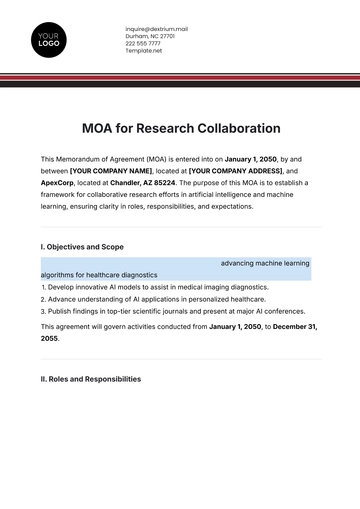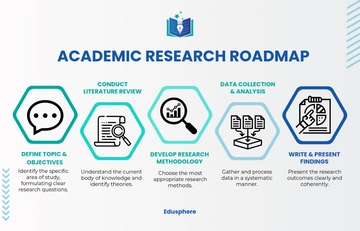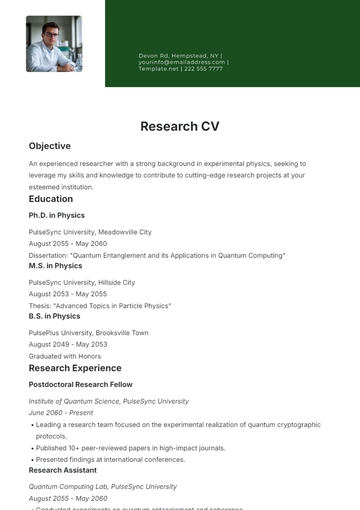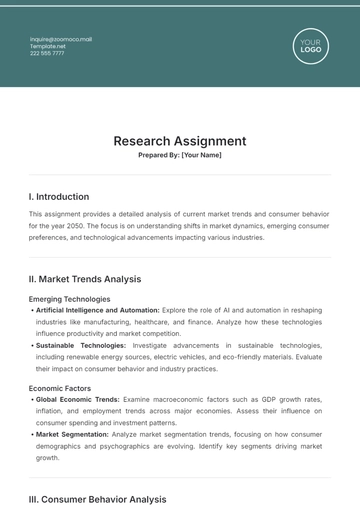Fieldwork Research Ethnography
Prepared By: [YOUR NAME]
Date: [DATE]
Title: Understanding Remote Work Cultures: An Ethnographic Study of Digital Nomads
I. Introduction
This in-depth ethnographic research explores the lives and work habits of digital nomads, who use technology to work from anywhere in the world, enabling them to travel while maintaining their job responsibilities. The study's main goal is to understand how remote work shapes different aspects of their lives, including their social interactions, work routines, and daily habits, within the digital nomad community. By thoroughly observing and analyzing these elements, the research seeks to reveal the subtle effects of remote work on these individuals and how they balance their professional duties with a nomadic way of life.
II. Methodology
The research was conducted over six months using participant observation and in-depth interviews. Data was collected through immersive fieldwork in various coworking spaces and digital nomad hubs in Southeast Asia. Participants included freelancers, entrepreneurs, and remote employees. Data collection involved daily observations, informal conversations, and structured interviews.
III. Literature Review
Previous studies have examined various aspects of remote work but often focus on static environments or specific industries. This research broadens the scope by exploring digital nomads. Key contributions include:
Smith (2050): Provides an overview of remote work benefits and challenges, including flexibility, productivity, and work-life balance. His study, however, is centered on traditional remote work settings rather than the nomadic lifestyle.
Jones (2052): Analyzes the psychological effects of prolonged travel on work productivity, highlighting both benefits and drawbacks, such as stress and social isolation. This research lacks a focus on the cultural aspects of nomadic life.
This study builds on these foundations by examining how the digital nomad lifestyle affects:
IV. Findings
Work-Life Balance: Digital nomads report a high degree of flexibility, which they value greatly. However, this flexibility often blurs the boundaries between work and personal life, leading to challenges in maintaining a consistent work routine.
V. Analysis/Discussion
This study highlights that while digital nomads benefit from significant autonomy and flexibility, they face challenges related to work-life balance, cultural adaptation, and technology dependence. Community support plays a crucial role in mitigating some of these challenges.
Autonomy and Flexibility: Digital nomads appreciate the freedom to choose their work environment and schedule, enhancing job satisfaction. However, this flexibility can blur work-life boundaries, complicating routine maintenance.
These findings align with Jones's (2052) research on the psychological effects of travel but offer a deeper understanding of how community and technology influence the nomadic lifestyle. The study shows that while digital nomads face unique challenges, community support, and reliable technology greatly enhance their ability to succeed.
VI. Conclusion
This comprehensive study examines the digital nomad lifestyle in detail, highlighting both the significant benefits of its flexibility and the substantial challenges of balancing work and personal life. It underscores the importance of community support and reliable technology for success in remote work settings. Additionally, it proposes that future research explore how these findings could be applied across different geographic areas and professional sectors to enhance understanding and practical use of the digital nomad lifestyle.
VII. References






























